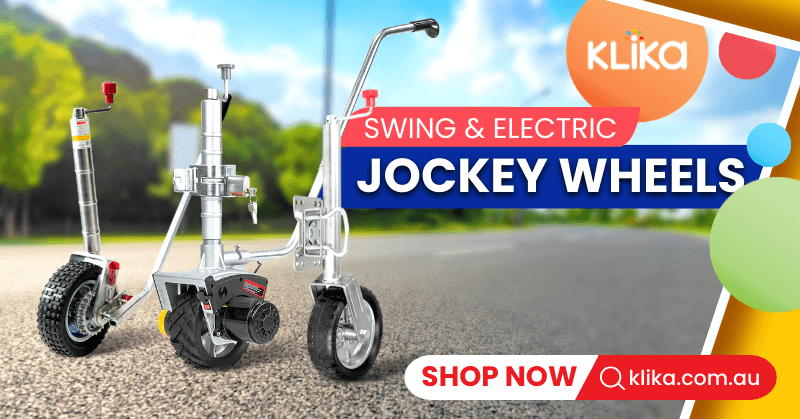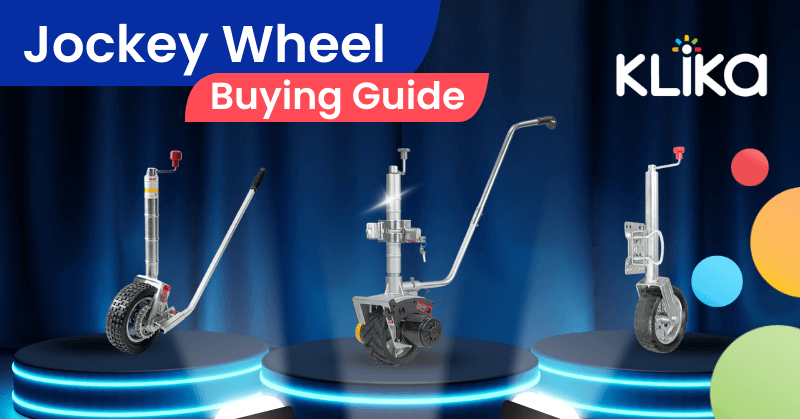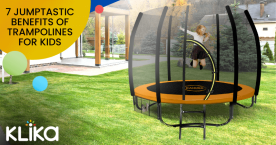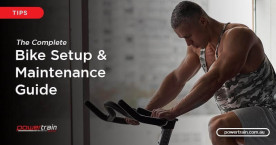A jockey wheel is a mechanical wheel system located near the hitch at the front of a trailer or caravan. It functions as a guide or steering wheel that allows you to manually maneuver your trailer or caravan at a low speed when it is detached from its tow vehicle. Often, the jockey wheel is also attached to the trailer jack.
These wheels have in-built screw jacks that enable you to lift the trailer nose over the tow vehicle’s tow ball and lower it to fit securely onto the tow ball. Their caster action also allows for smooth movement in all directions, making it extremely easy to navigate with a trailer when it is not attached to a tow vehicle. Jockey wheels also provide ample ground clearance and usability on different surfaces.
As you can tell by now, choosing the right jockey wheel can make all the difference when you want to move your caravan or trailer around easily.
To help you out, this nifty guide covers everything you should know about finding the right jockey wheel!
Types of jockey wheels
There are two main types of jockey wheels, each serving different purposes. So, depending on your requirement, you can decide which would best fit your needs.
Solid jockey wheels
The tyres of solid jockey wheels are typically made from solid rubber, nylon or plastic. Solid jockey wheels are extremely useful on hard surfaces as they can support the maximum amount of weight. These wheels are particularly used on tightly packed soil, paved roads or concrete driveways. They are also less expensive, making them a good choice.
Pneumatic/soft jockey wheels
The tyres of pneumatic jockey wheels are soft and filled with air. It allows the wheels to support large amounts of weight on softer surfaces, making them ideal for use on muddy soil or beachy sand.
What size jockey wheel do I need?
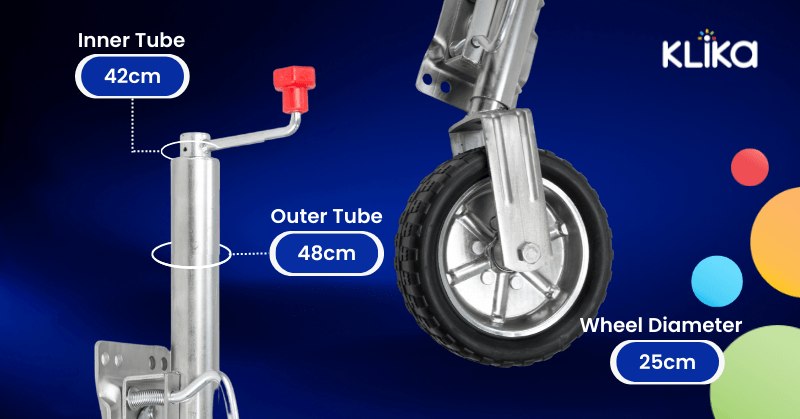
Using the right jockey wheel size is crucial for ensuring that your jockey wheel is well-suited to the load it is meant to carry. Using the wrong size wheel can damage not just the wheel but also the trailer.
When buying a jockey wheel, you have to consider two sizes on the wheel — the diameter or jockey wheel sleeve and the open and closed height of the adjustable jockey wheel.
The jockey wheel diameter or sleeve is available in a range of sizes:
- 34mm — the smallest available diameter, meant for extremely lightweight trailers
- 42mm — ideal for larger trailers and smaller, unbraked boat trailers
- 48mm — the most common size for boat and commercial trailers and caravans
- 48mm serrated — meant for heavy-duty commercial trailers
- 60mm or 63mm — the least common of jockey wheel sizes; these have a capacity of handling 750kg of nose-weight and are meant for extremely heavy-duty boats
Jockey wheel FAQs
What is a retractable jockey wheel?
A retractable jockey wheel eliminates the need for a clamp as it directly attaches to the multi-hole fixing plate at the side of the trailer.
Are jockey wheels universal?
Jockey wheels are not universal. Their diameter corresponds to the tooth count and varies from one wheel to another. The centre hole through which the jockey wheels are bolted to the cage also differ in size.
Can you swap between pneumatic and solid jockey wheels?
No, pneumatic and solid jockey wheels have different thicknesses and sizes due to their distinct designs. So, you cannot switch between the two even if their diameters may be similar.
When should I change a jockey wheel?
Jockey wheels must be regularly replaced or changed, especially if they are damaged. However, this often depends on the frequency of usage and how carefully you use your jockey wheels.
If used properly or infrequently, jockey wheels can last for a long time compared to those that are not properly attached. Generally, jockey wheels must be replaced when they begin to wear out to prevent damage or accidents.
Do jockey wheels need grease?
Jockey wheels do need maintenance, for which grease is required. You must extend the jockey wheel as high as possible, then clean off any dirt. Next, grease the jockey wheel to keep it well-lubricated and you’re good to go. This should be done regularly, whenever you check your trailer or boat.
Can you move loaded trailers with a jockey wheel?
Jockey wheels are typically designed to only move empty trailers, and it is important to avoid using an excess amount of weight on the jockey wheel. Using the jockey wheel to move a loaded trailer can damage the hitch, wheel or even the trailer jack.
How do I properly use a jockey wheel?
If you’re using a jockey wheel to pull a trailer, ensure that the jack is raised to the highest possible position before moving it. Otherwise, you run the risk of the jockey wheel scraping against the road, which can cause a flat spot in the tyre. This could hinder the trailer’s movement and obstruct precise navigation.
How do I park a trailer equipped with a jockey wheel on soft surfaces?
To park a trailer that is attached to the jockey wheel on a soft surface, it is important to place the wheel on a support. It will help ensure that the wheel doesn’t sink in and damage the wheel or jack.
A board or similar flat item placed under the jockey wheel can help distribute the weight when parking on a soft surface. This will prevent the wheel from sinking in.
How do I calculate the load rating?
The first step when calculating calculate the load that the jockey wheel must carry is to calculate the weight of the trailer and the boat, caravan, or whatever else you will be transporting. Then, add 20% extra to act as a safety margin so you’re not too close to the maximum capacity which could run the risk of damaging the jockey wheel. This final number is the jockey wheel capacity you should be using.
Final thoughts
Jockey wheels are crucial elements for maneuvering a trailer around, and at Klika, we know how important they are. We have an extensive collection of tools and accessories that can help you navigate your prized possessions, be it a boat or a caravan, on your trailer. Check out our range of high-quality jockey wheels for your trailer or caravan now!
